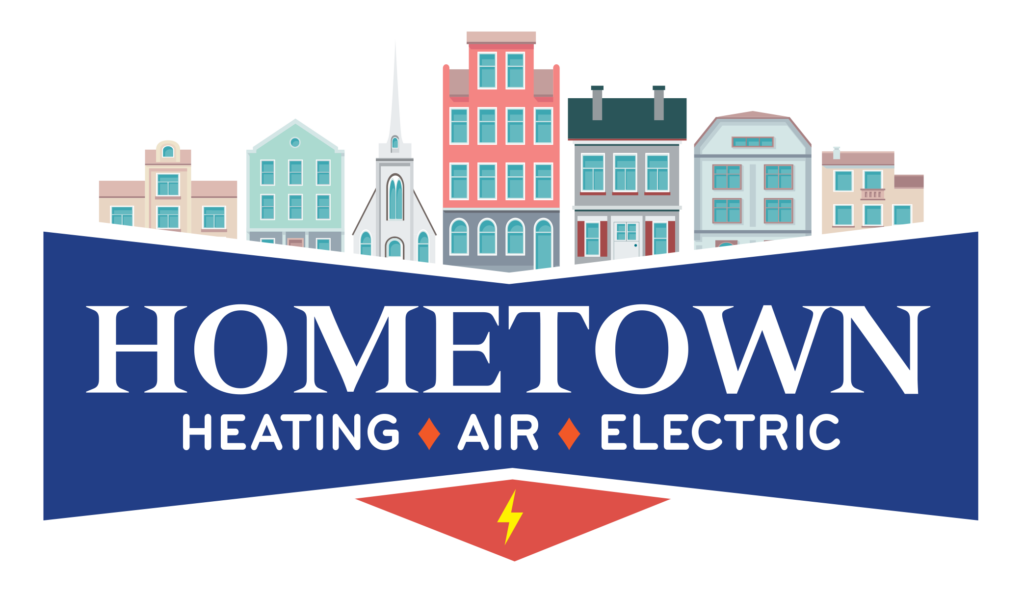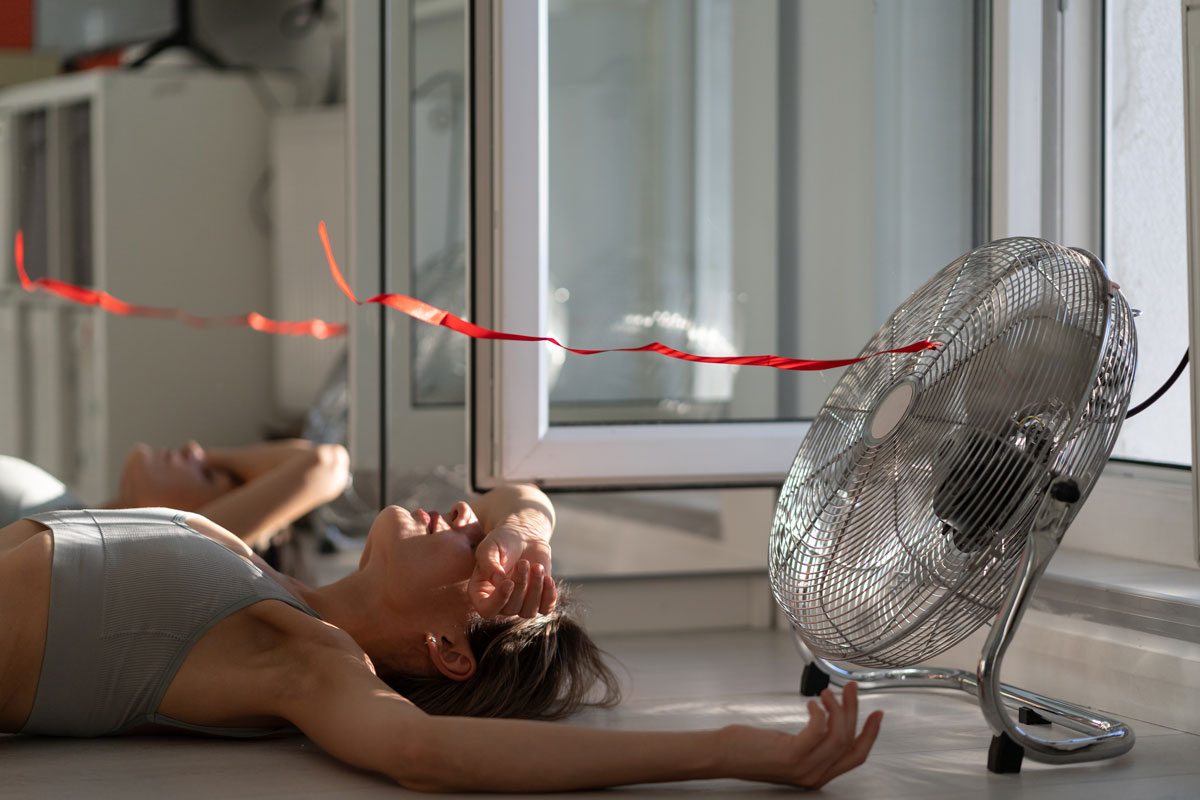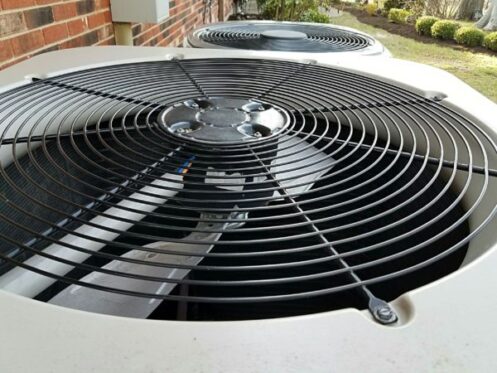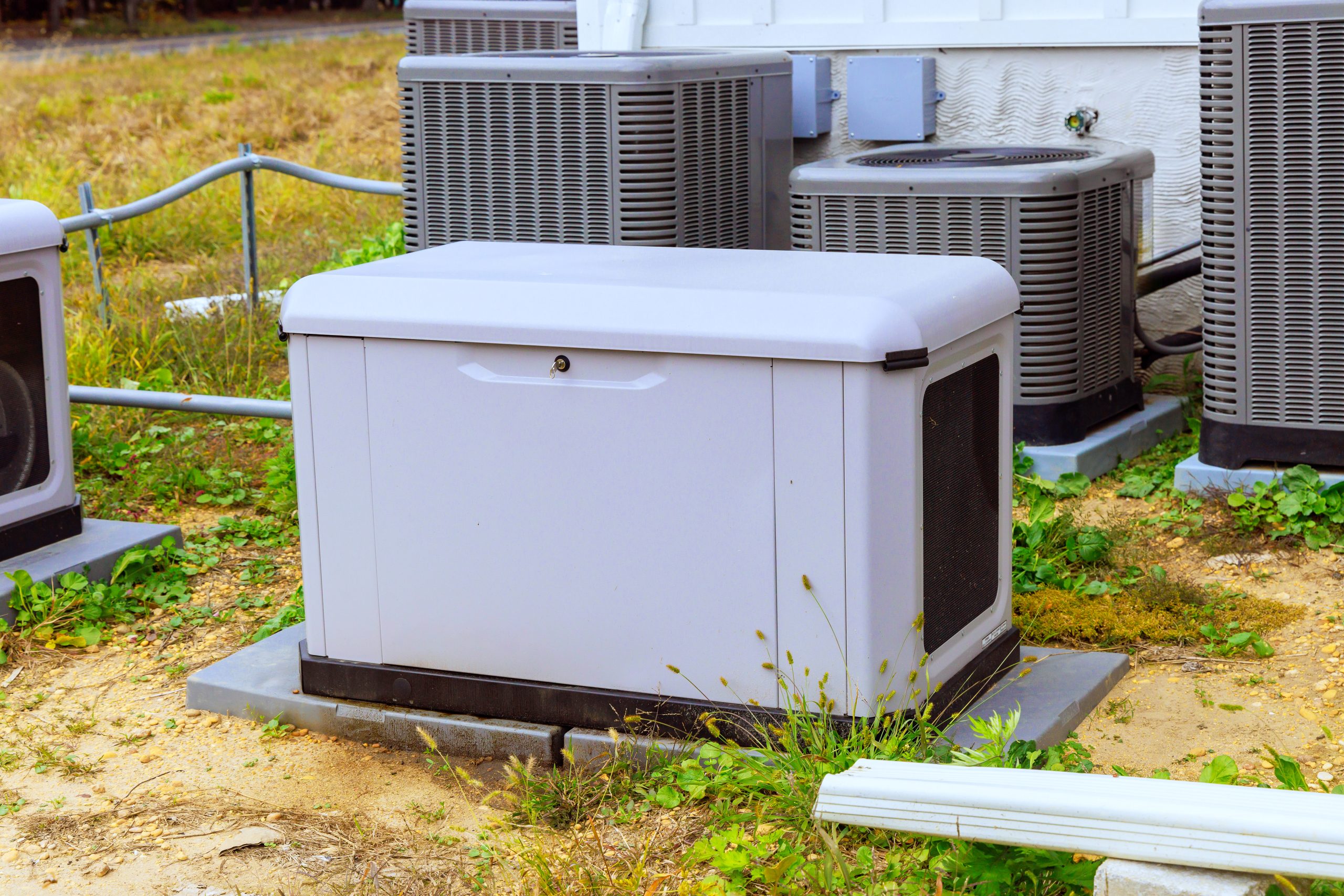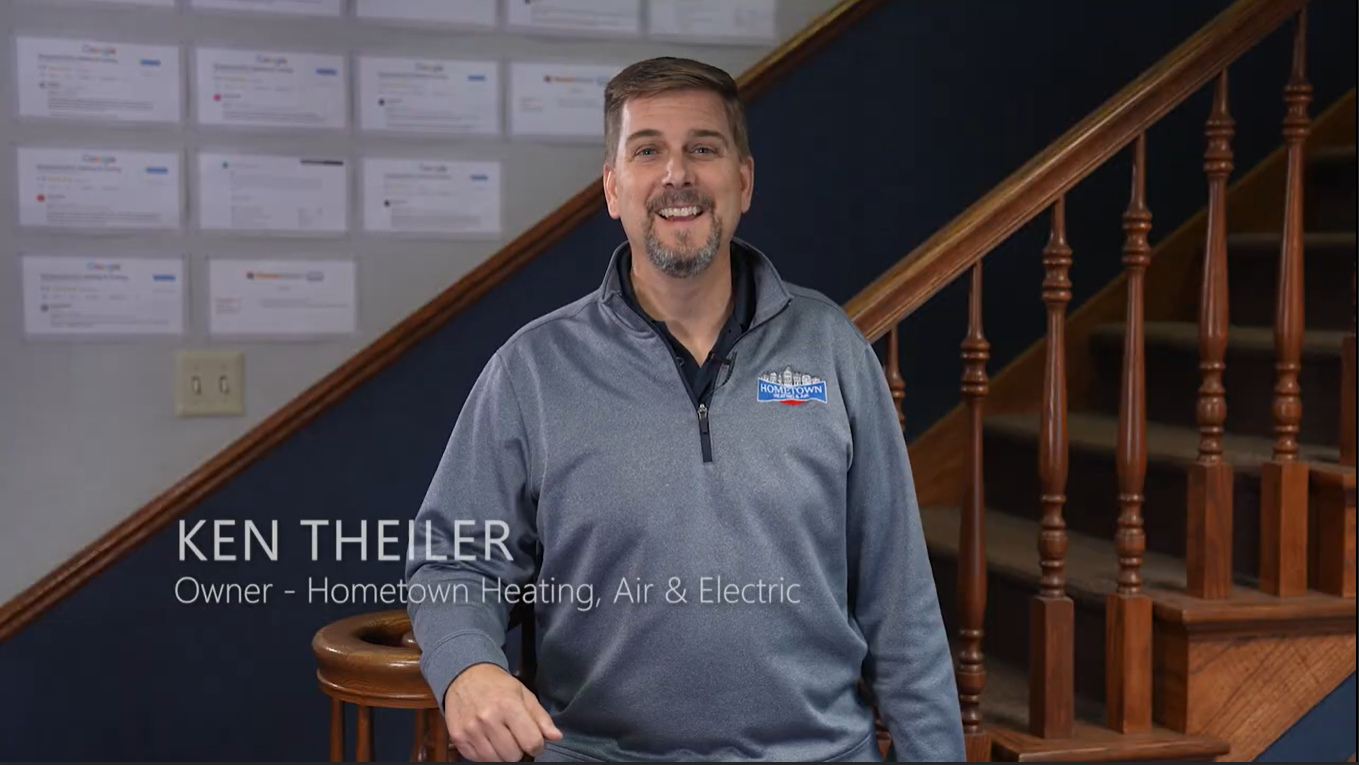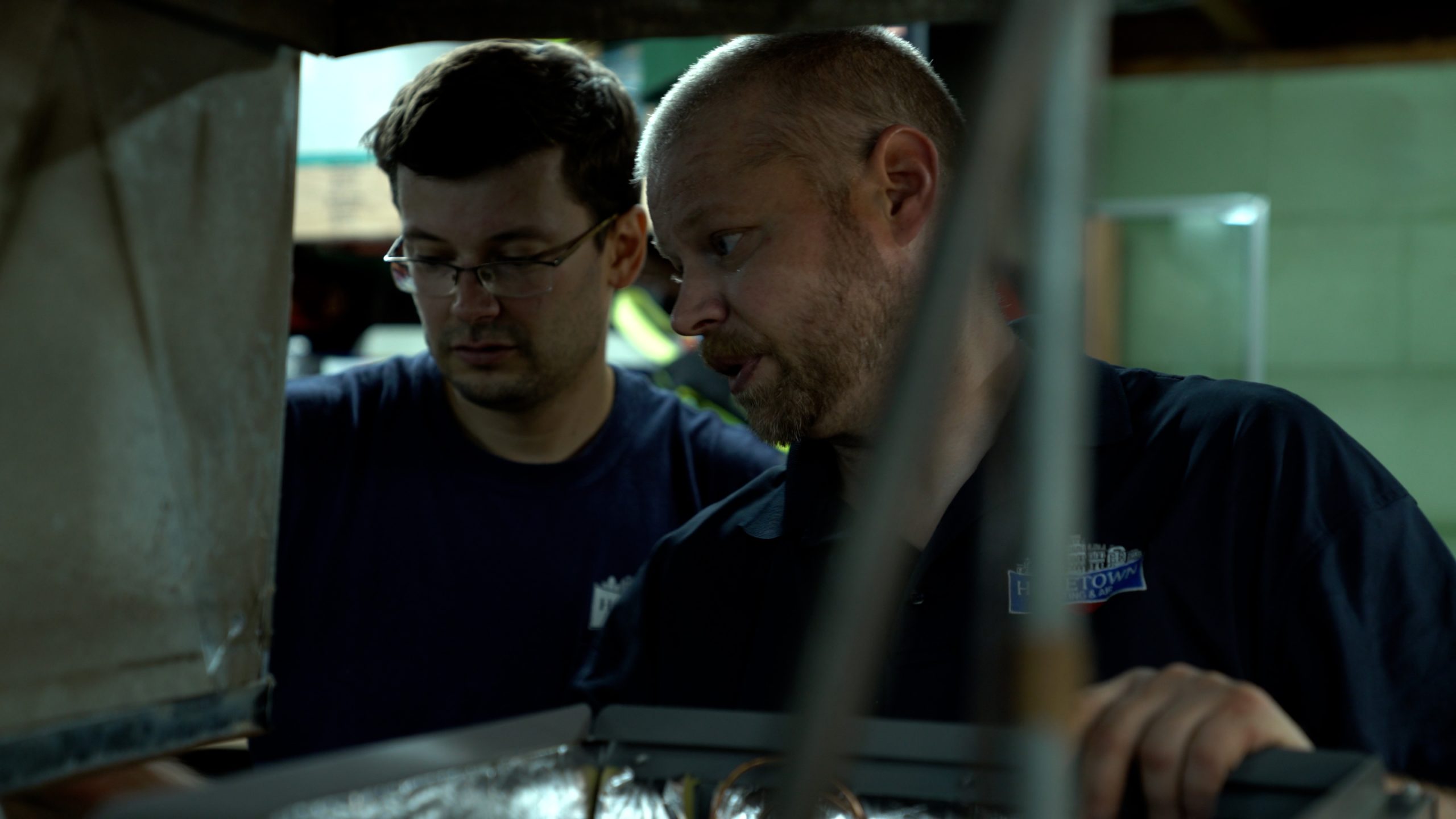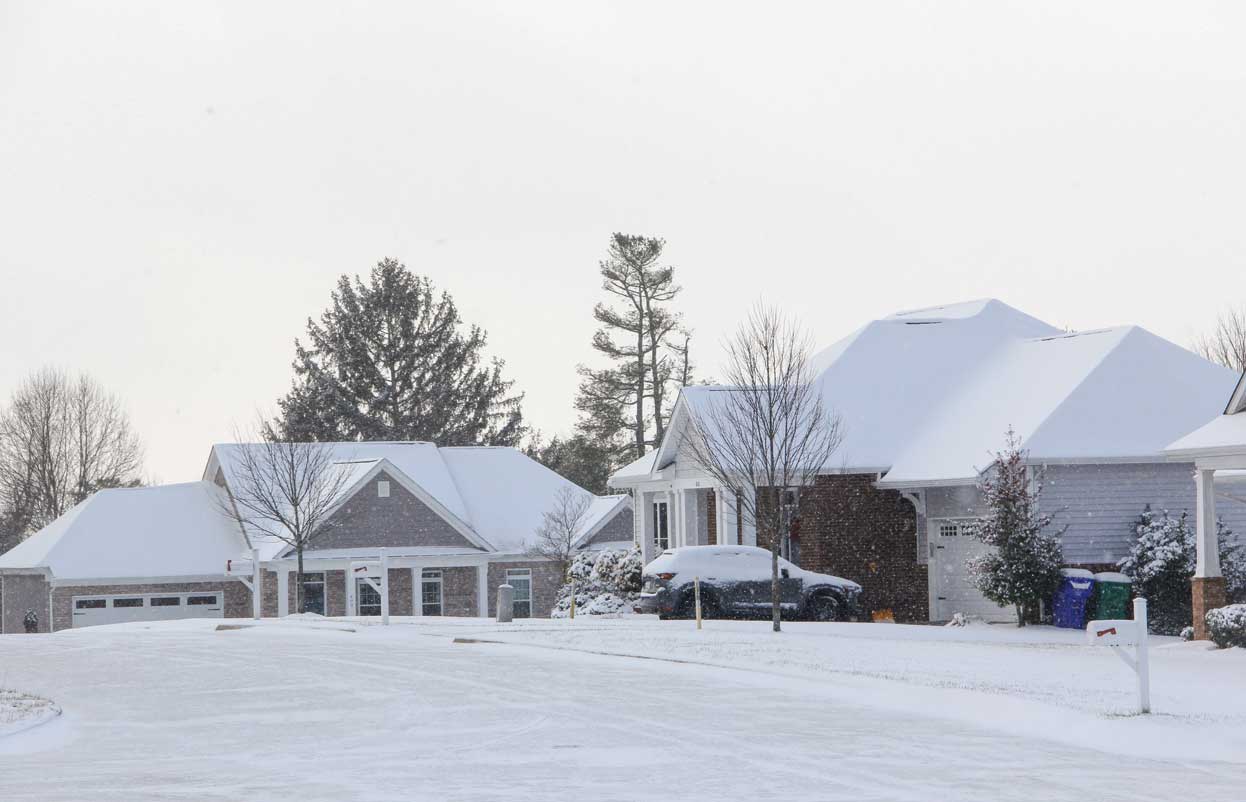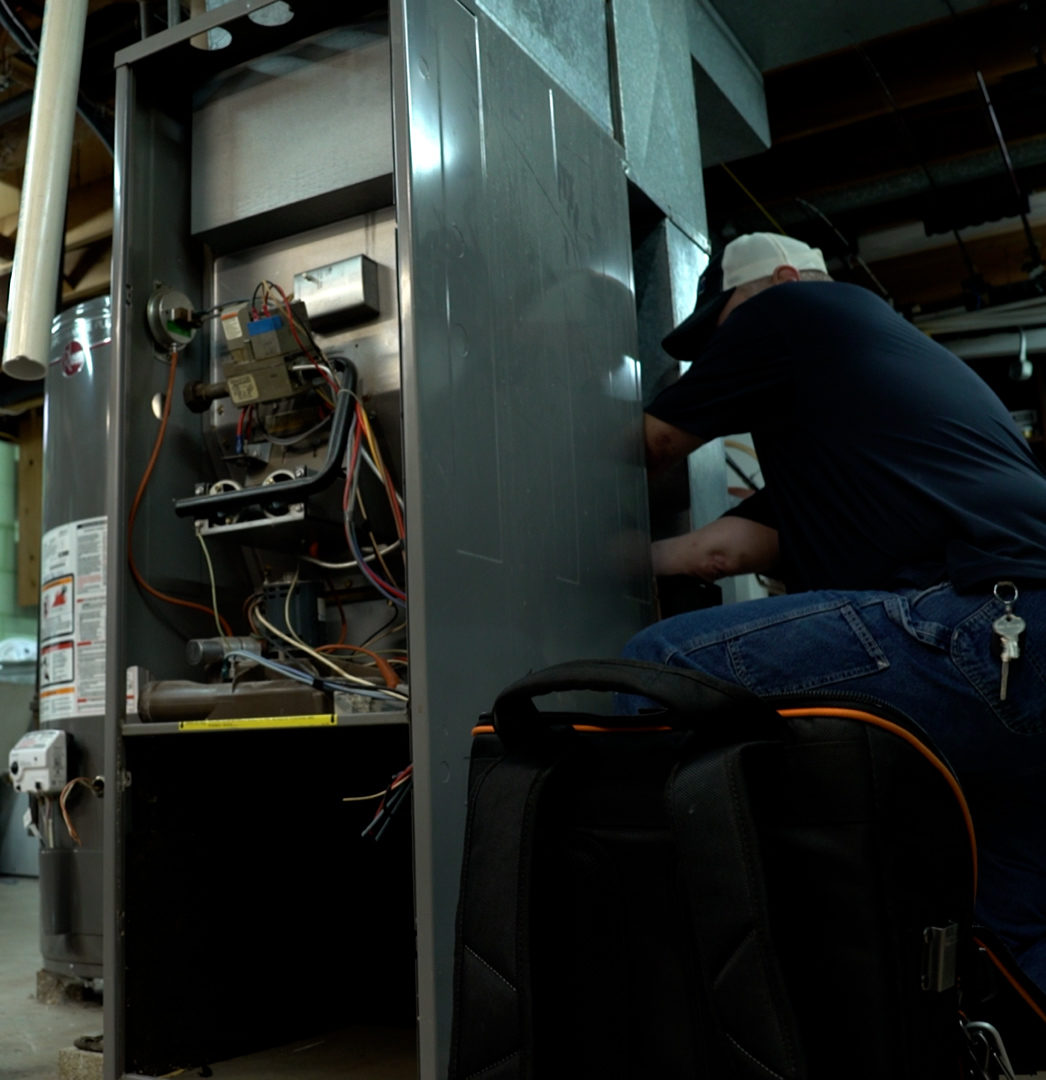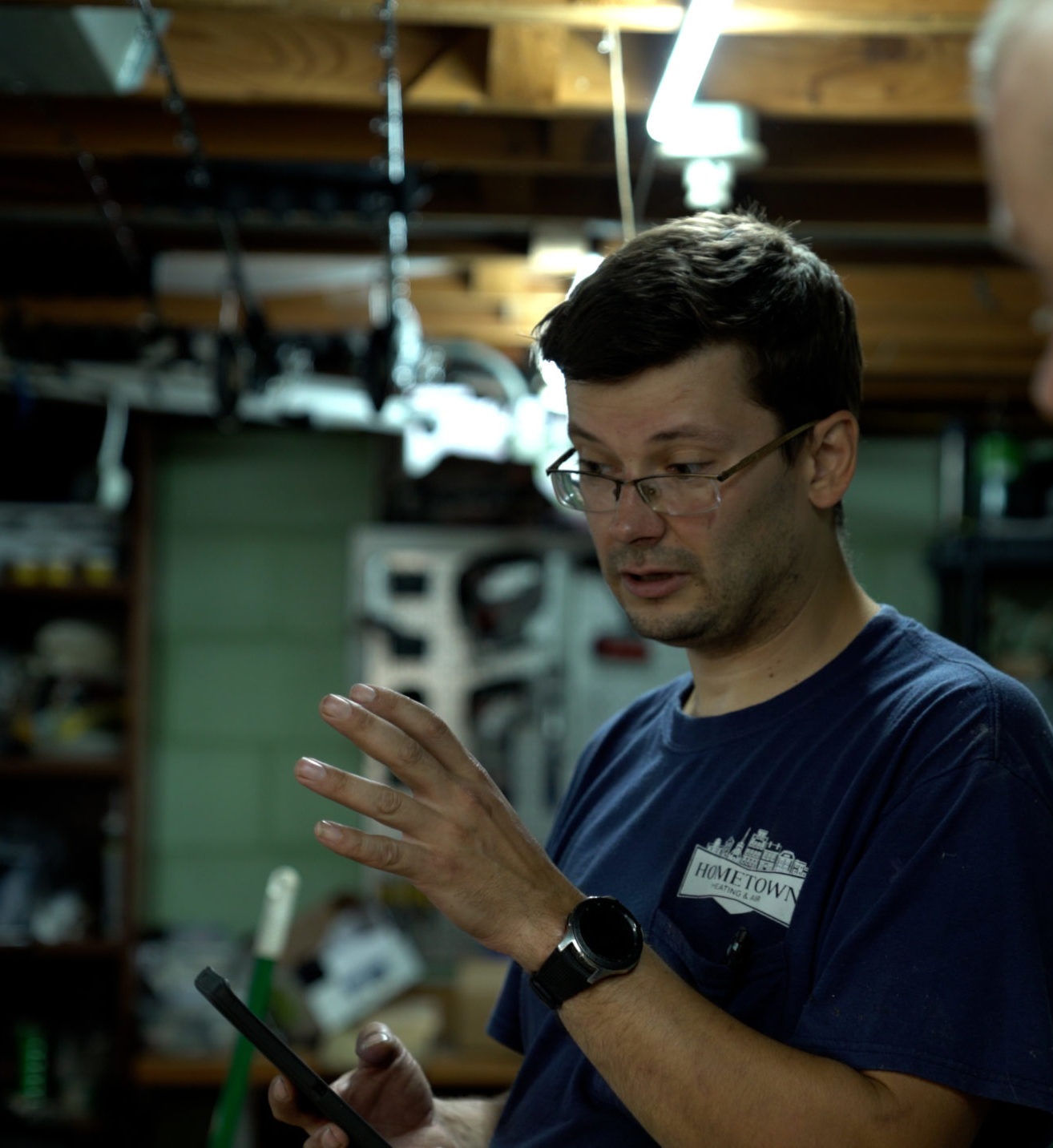Cooling your home in the summer can be challenging as temperatures soar in Cedarburg, WI. At Hometown Heating, Air & Electric, we provide expert tips to keep your home comfortable while minimizing energy costs, ensuring you stay cool without breaking the bank.
Practical Ways to Stay Cool
- Use Ceiling Fans: Run fans counterclockwise to push cool air down, enhancing your air conditioning efficiency. This simple trick can make your home feel up to 4°F cooler, reducing the need to lower your thermostat. Ensure fans are dusted regularly for optimal performance.
- Close Curtains and Blinds: Block sunlight during the hottest parts of the day, typically between 10 a.m. and 4 p.m., to reduce indoor heat gain. Consider using blackout curtains or thermal blinds for maximum insulation, which can lower indoor temperatures significantly.
- Seal Air Leaks: Inspect windows, doors, and other openings for leaks and seal them with weatherstripping or caulk to keep cool air inside. Even small gaps can let warm air infiltrate, forcing your AC to work harder. This step also improves energy efficiency year-round.
- Schedule AC Maintenance: Regular tune-ups ensure your AC runs efficiently, preventing breakdowns during heatwaves. Book a service call with our team to clean coils, check refrigerant levels, and optimize performance, saving you money on energy bills.
- Use a Programmable Thermostat: Set higher temperatures when you’re away and cooler ones when you’re home to save energy without sacrificing comfort. Modern smart thermostats allow remote control via smartphone, giving you flexibility to adjust settings on the go.
Avoid Common Mistakes
- Don’t Overcool: Setting your thermostat too low, like below 75°F, strains your AC and spikes energy bills. Aim for 78°F when at home for a balance of comfort and efficiency. Each degree below this can increase cooling costs by up to 8%.
- Avoid Blocking Vents: Keep furniture, rugs, and curtains away from vents to ensure proper airflow. Blocked vents force your AC to work harder, reducing efficiency and causing uneven cooling. Check all rooms to ensure vents are unobstructed.
- Don’t Skip Filter Changes: Dirty filters restrict airflow, reducing AC efficiency and indoor air quality. Replace filters every 1-3 months, especially during heavy summer use. Clean filters help maintain consistent cooling and prevent costly repairs.
Trust Hometown for Cooling Solutions
Effective cooling your home in the summer starts with smart habits and reliable HVAC systems. Hometown Heating, Air & Electric, serving Ozaukee, Waukesha, and Milwaukee counties, offers expert AC services and high-quality Lennox systems. As a BBB-accredited business with an A+ rating and four-time Angie’s List Super Service Award winner, our team ensures your comfort year-round with professional, friendly service.
Ready to beat the heat? Call us at (262)-510-2215 or contact us for a $25 off service call. Explore our indoor air quality solutions to enhance your home’s comfort and breathe easier this summer!
